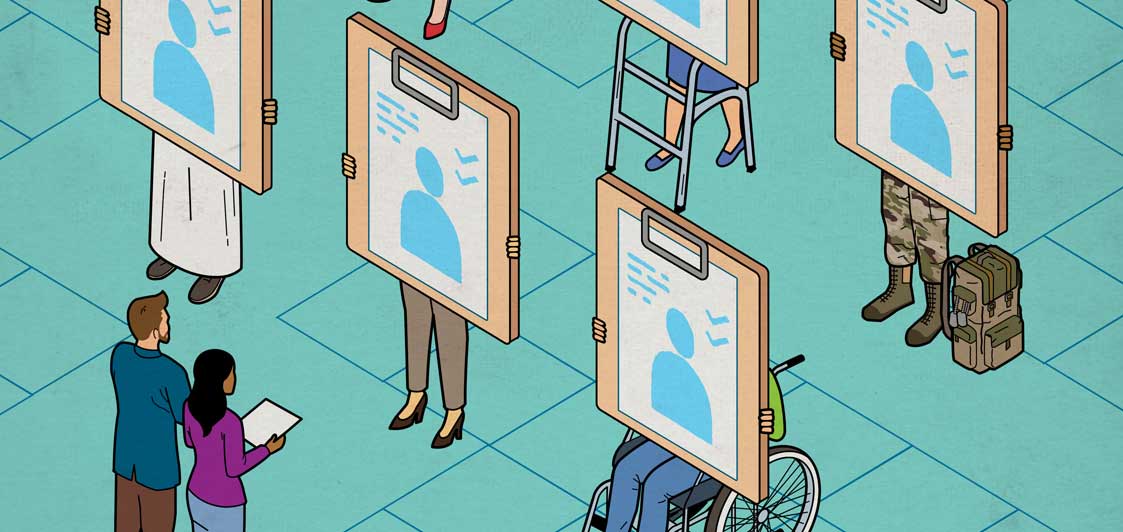Re-energising anti-racism strategy and examining our values


Paul is the Director of Talent Acquisition and Diversity & Inclusion at AMS.
When Black Lives Matter hit the news again this year, Alexander Mann Solutions’ diversity and inclusion team revitalised the company’s approach to discrimination, writes Paul Modley.
Business cannot and does not exist in a bubble. There are some moments in history which define us, offer a step-change to how we view the world and see each other, whether at work or beyond. When #MeToo went viral in 2017, we knew we could no longer ignore the blight of sexual harassment and abuse. When images of a Minnesota policeman kneeling on George Floyd’s neck stunned the world in May this year, there was a sense that something must be done; that enough was enough when it came to racism and discrimination.
The resurgence of the Black Lives Matter (BLM) movement has been a defining moment of 2020, the effects of which have reached so many of us. As the guardians of diversity and inclusion (D&I) at Alexander Mann Solutions, we’ve been at the forefront of equality, diversity and inclusion for many years. We pride ourselves on the progress made with a whole range of traditionally under-represented groups: offering inclusion-enabling work practices for working mothers, championing social mobility and providing opportunities for people with disabilities. BLM has provided an immediate and urgent imperative to do more about our lack of ethnic diversity.
We need to continue to see people as individuals, with unique backgrounds and experiences, and recognise this when it comes to work design and culture.
Importantly, much of that impetus has come from our minority colleagues themselves. They have felt empowered by the protests to speak up and be more candid about the change they want to see. The ability to have frank conversations about racism has been a game changer. Anti-racism is now part of the company’s vocabulary in a way it hasn’t been before. People are not just expressing their feelings, but also making specific requests about greater visibility and the need for a proper plan. They want to see a commitment.
As a result, we are revisiting demographic data so that we can put in place the right plans to increase diversity at all levels of our business via a comprehensive set of talent acquisition and development actions. We’re also refreshing our training around conscious inclusion for everyone from our senior leaders down, and developing a strategic plan to keep the progress made to the fore and sustainable. Visible buy-in from the very top has been really important, too.
Ensuring psychological safety
We know this is just the start. We need to continue to provide the platforms for people to talk – and, crucially, we need to listen. We need to create the psychological safety to allow people to open up and to have those uncomfortable conversations around racism. We need to be sensitive about the use of language, but not to the extent that we use this as an excuse for not having those conversations at all. We’ve learned from our minority colleagues that “it’s better to say something not quite right than not say anything at all” – provided the positive intent is there.
More than ever, we need to continue to see people as individuals, with unique backgrounds and experiences, and recognise this when it comes to work design and culture. Our regular pulse surveys will measure sentiment around inclusion and belonging, broken down by demographics to allow for finer analysis.
Coupled with the COVID-19 pandemic, BLM has made us even more aware of how important it is to articulate our purpose, vision and values. It’s made us think carefully about our leadership behaviours and what we stand for. We’re learning that the people with whom we work want to experience our values at every touch point.
We need to continue our journey to place people and culture – rather than process – are the core of everything we do. BLM has made us more thoughtful and intentional about ethnic diversity, but it’s also reinforced that wider change, one that will make us a better business for the future.
Originally published in Catalyst Magazine The Diversity Issue.
More articles
Choose a Partner, Not a Provider: Rethinking GCC Setup in India in 2025
Choosing the right partner to set up your Global Capability Center in India can make or break ROI. Discover AMS's proven expertise in building high-impact GCCs.
Overview of Innovation Board and insights on the most recent meeting
During the recent Innovation Board meeting, the group discussed how talent teams will need to adapt to deliver success in a changing world of work.
From Cost Centers to Value Creators: How AMS Is Redefining GCCs
Global Capability Centers in 2025 are strategic hubs for talent and innovation. Learn how AMS is transforming GCCs in India to drive agility, growth, and enterprise value.

Start your journey to True Workforce Dexterity.
Discover how we can help you build, re-shape and optimise your workforce.
Talk to us




